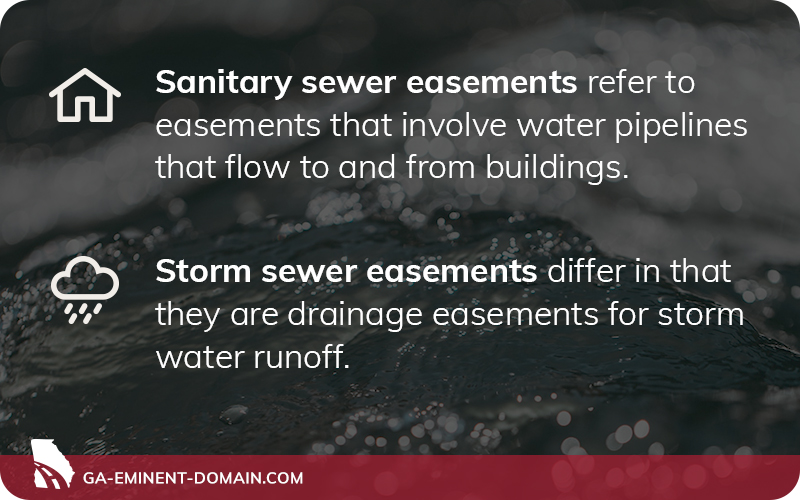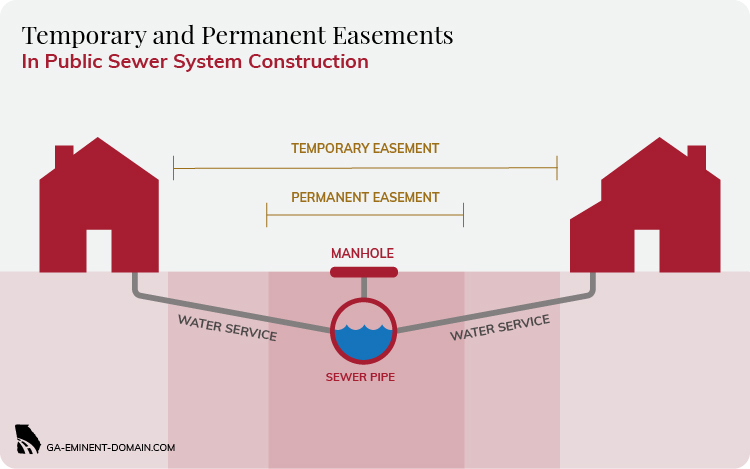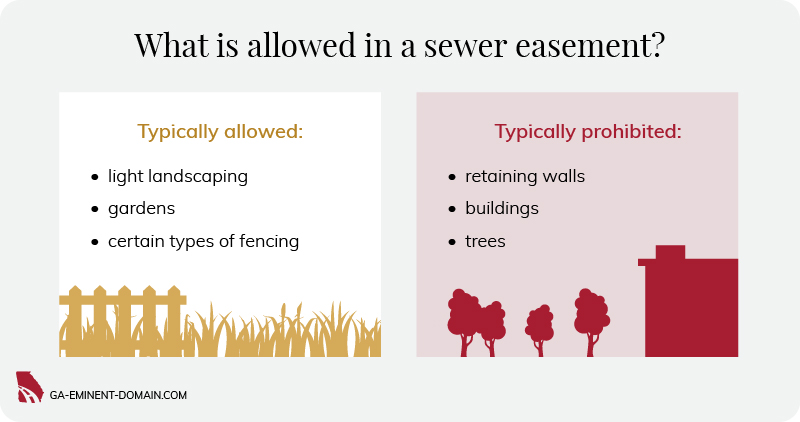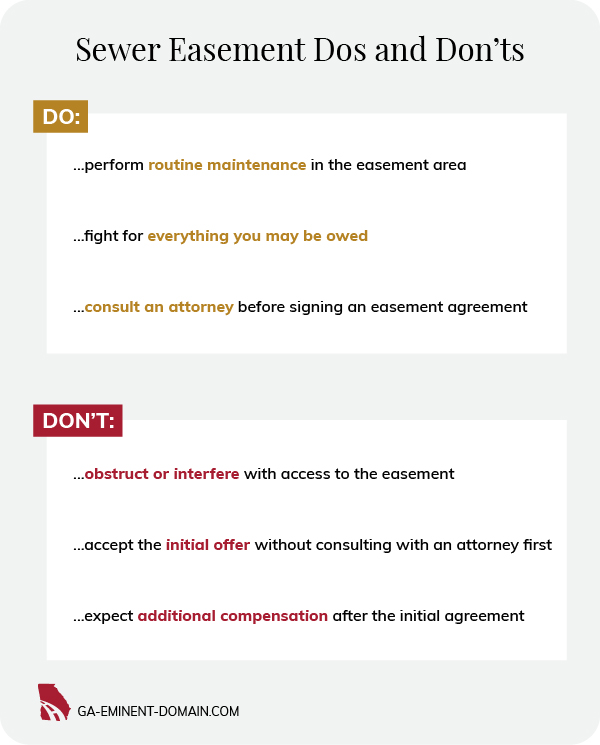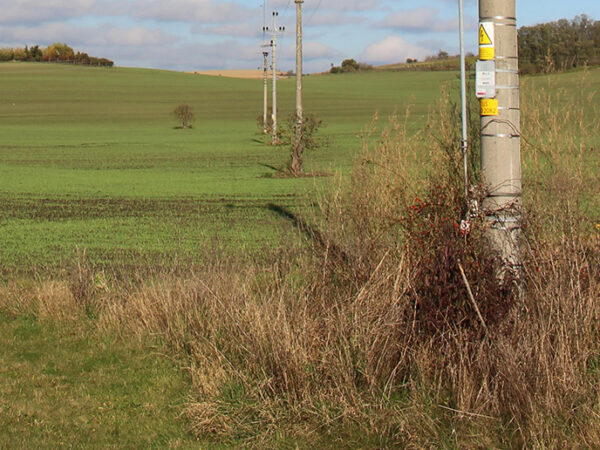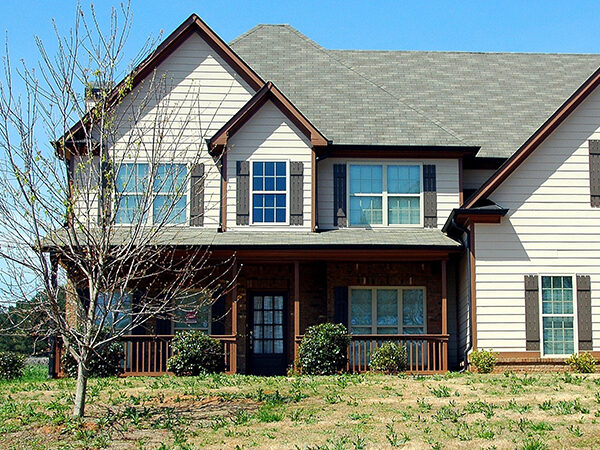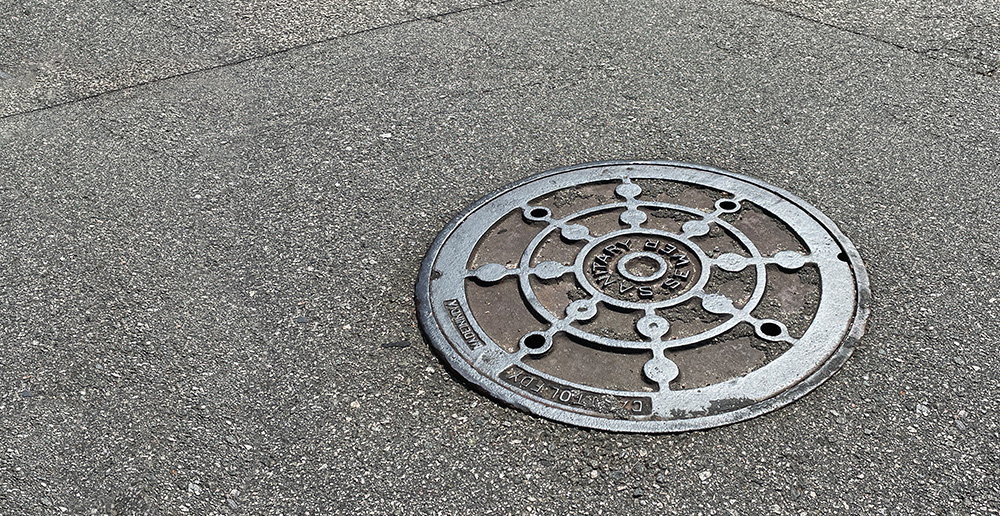
A sewer easement gives the government the right to access and utilize your property when it needs to build or maintain a sewer system – without purchasing it outright. While that may seem like no big deal, there’s a catch with permanent sewer easements: the government is allowed to change its mind about how it will use the land, so what you are agreeing to now may change in the future. An experienced eminent domain attorney can help you see the big picture and fight for fair compensation.
Easements dedicate portions of private property for public use. Sewer easements are a type of utility easement that are required by the government for both the installation of sewer pipelines and their ongoing inspection and maintenance. Because inadequate operation and maintenance of a sanitary sewer system can cause sanitary sewer overflow failures in the sewer system and threats to public health, sewer easements are a fact of life that many property owners must contend with.
Georgia law states that the government is required to compensate you for a sewer easement but the amount is up for debate. I strongly urge you to enlist the help of an eminent domain attorney when negotiating with the government about a sewer easement so that you understand what you are agreeing to and to fight for full and fair compensation.
Which is which? Sanitary sewer easements versus storm sewer easements
Sewer easements are also called sanitary sewer easements in many municipalities. Another type of utility easement is a storm sewer easement which is a drainage easement that designates areas for the passage of surface storm water runoff. A storm sewer drainage easement may have a storm water line buried beneath it or may be the intended pathway for storm surface water to flow on top of the ground, and it has its own set of restrictions. In this page, I will focus only on sanitary sewer easements.
Sanitary sewer systems: Permanent and temporary construction easements on your land
In the case of public sewer system construction, the government often requires both permanent and temporary construction easements. Temporary sewer construction easements can be required for the construction of a new sewer line and are granted for a specific period of time, after which all rights are returned to the property owner. For example, temporary sewer easements can require additional property footage outside of the permanent easement as illustrated below:
Again, if the government requires a permanent sewer easement now to install a specific size of a sewer pipe, it may need to come back later to replace that pipe with a larger one. A permanent easement allows this, but generally there is no way to get additional compensation for any damages or inconvenience after the initial agreement. This is just one of the many reasons why you should talk to an eminent domain attorney who can help you understand what the immediate planned use for the land is, as well as what the government can legally use the easement for in the future.
What a property owner can do (and not do) in their sewer easement
While every municipality will have different regulations about what you can and cannot do in a sewer easement, many may allow light landscaping, gardens, and certain types of fencing. However, anything that is in the sewer easement area when maintenance must be performed on the sewer may have to be removed if it is obstructing access.
Permanent structures, such as retaining walls and buildings, are generally prohibited in sewer easements. Trees can be difficult to work around and their roots can damage the sewer structure beneath it, and for these reasons, they are often not permitted in a sewer easement.
Because many sewer easements contain access points for sewer system maintenance to prevent sanitary sewer overflows as well as emergency response to overflow issues, it is usually advisable not to build anything on the easement that would impede access to the sewer system. A Georgia eminent domain lawyer can help you understand any sewer easement regulations for your property.
How do I know if I have a sewer easement on my property?
Since sanitary sewer easements provide the government with the right to access the property for inspection and maintenance purposes, they generally overlay the location of a sanitary sewer main on your property.
Sewer easements are often developed at the time the utility is constructed or when a piece of property is subdivided for use, and they are often shown on property surveys and descriptions of land, such as a deed. You can also have a search performed by a reputable public records research company. Because utility easements are attached to the property deed, they pass on when the property is transferred or sold.
We can help you understand how a sewer easement impacts your property
If a sewer easement has not been previously granted or implied, the government typically acquires one during the right-of-way stage of the eminent domain process. It is important to understand exactly how that easement may affect the value and future use of your property when negotiating its value.
The GA Eminent Domain Law Firm can help you understand the complexities and impacts of a sewer easement by:
- calculating the potential value of the sewer easement
- identifying possible tax value implications of having a sewer easement on your property
- deciphering the easement agreement
- fighting for maximum compensation
If the government has informed you that it requires a sewer easement on your property, get help now. We can research your property to determine the impact of the easement, and we can let you know what we think a fair offer for the easement would be. The evaluation is free, and there’s no pressure or obligation to hire us after.
On average, our clients get 3X the initial offer for their properties .1 Call us at 1-888-391-1339 or submit our online form today.
